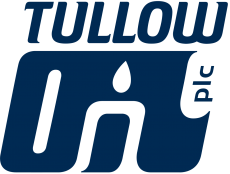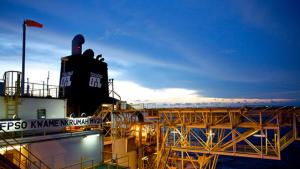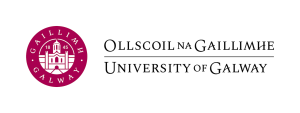
Project Start Date
01st Oct 2012
Tullow Oil - Data Optimisation and Efficiency
Data Optimisation and Efficiency
Knowing what lies beneath the Earth’s surface is a big deal for energy exploration. Pockets of oil and natural gas offer valuable natural resources, but how do exploration companies find them? And how can Big Data help?
One method, used by Irish company Tullow Oil, involves sending a pulse of sound energy from a boat using a compressed air source and measuring the sound that reflects back from the Earth’s subsurface, which contains hidden information about what lies beneath. To gather and analyse that information effectively, Tullow must develop complex algorithms, and a long-running collaboration with ICHEC is delivering the goods.
For such ‘seismic surveys’, the boat is rigged with specialised microphones that record the returning vibrations, and from that you can start to construct an image of the Earth’s subsurface, explains Dr Seán Delaney, a computational geophysicist who worked first with ICHEC and is now employed by Tullow Oil.

“We use a technique called Reverse Time Migration, which is computationally very expensive,” he says. “These surveys take in tens to hundreds of terabytes of Information, and it would take a combination of hundreds of desktop computers months to process it.”
With such large volumes of data being collected and processed, small inefficiencies can make a big difference, both in wasted energy for processing power and time to solution. ICHEC has been working closely with Tullow to optimise the code and make the process more streamlined and efficient.
“ICHEC have helped us to speed up our code by factors of five to 10. That means we can apply more complex imaging algorithms in a shorter timeframe using Tullow’s existing cluster.”
With Big Data comes Big Storage and ICHEC has recently worked with Tullow to help assess their data storage and management needs – the findings of that collaboration stand to further enable Tullow to pursue the data analysis it needs.
Dr Delaney sees ICHEC as a valuable source of expertise for the company: “Increasingly, in all areas of science and computing, it has become impossible to know everything required to solve a particular problem, so, more and more, we need specialists like ICHEC, who provide expertise that can apply to many real-world problems in industry.”
ICHEC computational scientist Ruairi Short has worked on the collaboration in recent years, and the ICHEC-Tullow partnership is now tackling further steps in the work flow of imaging the Earth’s subsurface at survey sites to explore resources below. “Tullow could not have done this without a blend of people with different backgrounds,” says Ruairi. “And that includes ICHEC’s physicists and computational scientists and links with data storage experts.”



